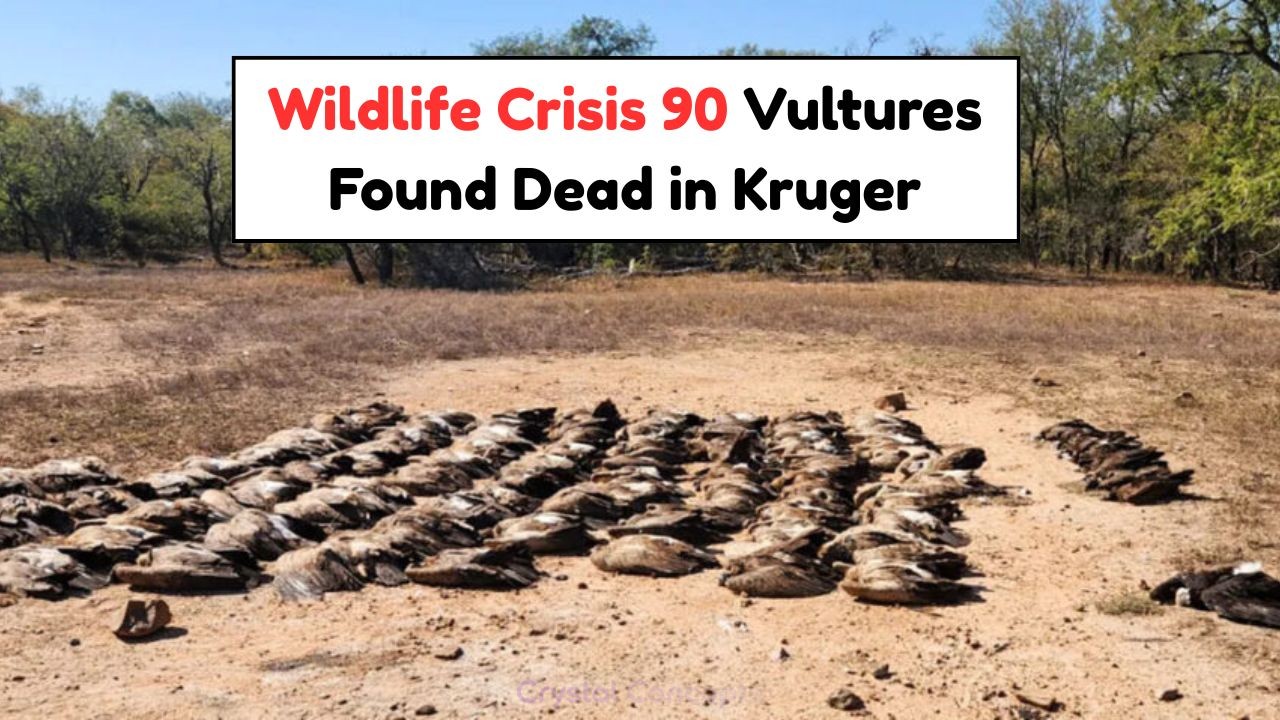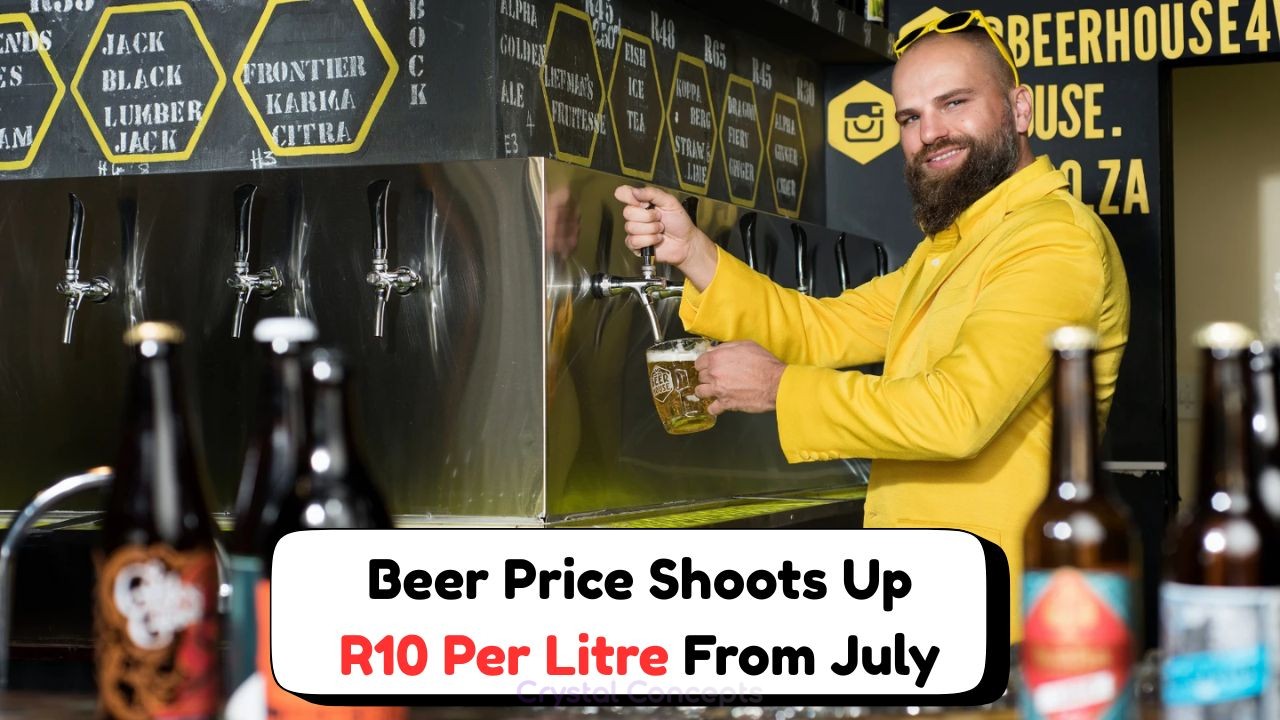90 vultures killed in Kruger Park: The tragic incident in July marked a significant conservation crisis in South Africa, as 90 vultures were found poisoned in Kruger National Park. This alarming event highlights the challenges faced by wildlife conservation efforts in the region. Vultures play a crucial role in maintaining the ecological balance by disposing of carrion, and their sudden decline poses a threat to the ecosystem. South African conservationists are now grappling with the implications of this loss, as it marks one of the most severe wildlife crises in recent years.
Understanding the Impact on South Africa’s Vulture Population
The mass poisoning of vultures in Kruger National Park is a severe blow to the already declining population of these essential birds in South Africa. Vultures are known as nature’s clean-up crew, performing the essential task of consuming dead animals, which helps to prevent disease spread. However, their populations have been under threat due to habitat loss, human-wildlife conflict, and poisoning incidents like the one in July. This catastrophic event not only affects the vultures but also disrupts the delicate ecological balance within the national park. Efforts to protect these birds are crucial, as their decline could lead to increased carcass accumulation, impacting other wildlife and potentially increasing disease transmission.
- Role of vultures: Vital for controlling disease spread.
- Conservation efforts: Necessary to prevent further ecological damage.
- Ecological impact: Disruption affects all wildlife in the park.
- Vulture population: Already in decline due to various threats.
- Long-term consequences: Potential for increased disease without vultures.
- Immediate actions: Needed to prevent future poisonings.
- Conservation partnerships: Collaboration with local communities is essential.
Causes and Consequences of Vulture Poisoning
The causes of vulture poisoning are often linked to human activities, including the use of poisoned bait to eliminate predators such as lions and hyenas. However, vultures inadvertently consume these baits and become unintended victims. The consequences of such poisonings are dire, leading to rapid population declines and weakening the biodiversity of the region. In Kruger Park, the July incident has raised alarms among conservationists who fear for the future sustainability of the park’s ecosystem. Addressing this issue requires immediate intervention and stricter regulations to prevent further damage.
| Threat | Impact | Prevention |
|---|---|---|
| Poisoned bait | Mass vulture deaths | Stricter laws |
| Illegal hunting | Population decline | Increased monitoring |
| Habitat loss | Reduced nesting areas | Conservation projects |
| Climate change | Altered ecosystems | Global initiatives |
| Human conflict | Disturbance of habitats | Community engagement |
Conservation Strategies for Protecting Vultures
Conservationists are now focusing on strategies to protect vultures and prevent similar incidents in the future. These strategies include enhancing community awareness about the importance of vultures, strengthening law enforcement against illegal poisoning, and supporting research to monitor vulture populations. Collaborative efforts between government agencies, non-profit organizations, and local communities are essential to implement these strategies effectively. Educating the public about the ecological role of vultures is vital to changing perceptions and garnering support for conservation initiatives.
- Education programs: Raising awareness in local communities.
- Law enforcement: Implementing stricter penalties for poisoning.
- Research funding: Supporting studies on vulture behavior and conservation.
- Community involvement: Encouraging local participation in conservation efforts.
Vulture Conservation Initiatives
| Initiative | Goal | Outcome |
|---|---|---|
| Community education | Awareness and support | Reduced conflict |
| Legal action | Deterrence of illegal activities | Increased protection |
| Research funding | Data collection | Informed strategies |
| Habitat restoration | Improved nesting areas | Population growth |
| Partnerships | Collaboration | Shared resources |
Collaborating with Local Communities for Wildlife Protection
Community engagement is a key component of successful wildlife conservation. By involving local communities in the protection of vultures, conservationists can create a sense of ownership and responsibility towards these majestic birds. Initiatives such as community-based monitoring and reporting systems can empower locals to play an active role in safeguarding their natural heritage. Moreover, economic incentives, such as eco-tourism projects, can provide financial benefits to communities, promoting a sustainable coexistence with wildlife.
- Community monitoring: Empower locals to protect wildlife.
- Eco-tourism benefits: Promote sustainable economic growth.
- Reporting systems: Facilitate quick response to threats.
- Education workshops: Enhance knowledge and skills.
- Collaborative projects: Strengthen community-conservation ties.
The Role of Technology in Vulture Conservation
Technology is playing an increasingly important role in wildlife conservation, offering innovative solutions to protect vultures and other endangered species. Drones, GPS tracking, and remote sensing are among the tools being used to monitor vulture populations and detect potential threats. These technologies enable conservationists to gather valuable data and respond quickly to incidents like poisonings. By integrating technology into conservation efforts, South Africa can enhance its capacity to protect its wildlife and preserve its rich biodiversity.
| Technology | Application |
|---|---|
| Drones | Surveillance and monitoring |
| GPS tracking | Animal movement tracking |
| Remote sensing | Environmental changes |
| Data analysis | Trend prediction |
| Communication tools | Community engagement |
Challenges in Implementing Conservation Policies
Despite the best efforts of conservationists, implementing effective conservation policies in South Africa faces several challenges. These include limited funding, insufficient manpower, and resistance from certain sectors of society. Additionally, balancing economic development with wildlife conservation remains a complex issue. To overcome these challenges, it is essential to foster strong partnerships between government bodies, NGOs, and the private sector. By working together, stakeholders can develop comprehensive policies that address the root causes of vulture declines and ensure the long-term sustainability of South Africa’s wildlife.
- Funding limitations: Seek diverse financial sources.
- Manpower shortages: Recruit and train more conservationists.
- Community resistance: Build trust and collaboration.
- Policy integration: Align conservation with development goals.
FAQ Section
How do vultures benefit the ecosystem?
Vultures play a critical role in the ecosystem by consuming dead animals, which helps prevent the spread of disease and maintains ecological balance.
Why are vultures declining in South Africa?
Vultures are declining due to habitat loss, poisoning incidents, and human-wildlife conflicts, all of which threaten their survival.
What measures are being taken to protect vultures?
Conservationists are implementing education programs, strengthening law enforcement, and using technology to monitor and protect vulture populations.
How can local communities help in vulture conservation?
Local communities can participate in monitoring, reporting threats, and supporting eco-tourism projects, which provide economic benefits while protecting wildlife.
 R370 Monthly Payments Continue Until March 2026 – Discover Why You Might Miss This Month's Payment
R370 Monthly Payments Continue Until March 2026 – Discover Why You Might Miss This Month's Payment
What role does technology play in conservation efforts?
Technology, such as drones and GPS tracking, helps monitor wildlife, detect threats, and gather data to inform conservation strategies.









